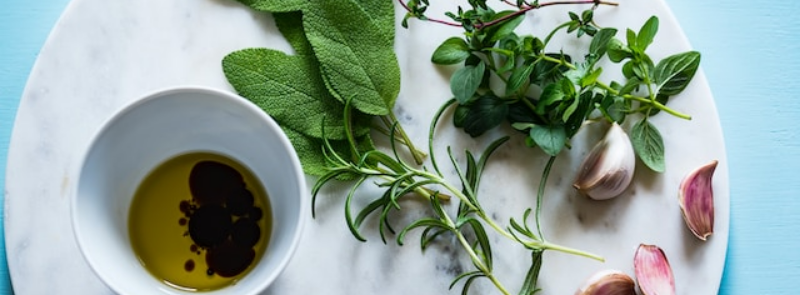
When It Occurs
Every August 29th
Timeline
Days Passed (807)
# Hashtags
#MoreHerbsLessSaltDay #HealthyWithHerbs
More Herbs, Less Salt Day on August 29th is an opportunity to embrace the flavorful essence that herbs bring to every dish. Established in 2002, this special day advocates for using herbs and spices as a healthier alternative to add taste to food, reducing the need for excessive salt.
Origins and History
The origins of More Herbs, Less Salt Day highlight the importance of healthy eating and the benefits of using natural seasonings:
- Health Awareness: More Herbs, Less Salt Day was created to raise awareness about the health risks associated with high sodium intake and to encourage the use of herbs as a healthier alternative.
- Culinary Tradition: The use of herbs in cooking has been a part of culinary traditions around the world for centuries. This day celebrates these traditions and the natural flavors that herbs bring to dishes.
The Significance of Using More Herbs and Less Salt
Using more herbs and less salt has several important benefits:
- Health Benefits: Reducing sodium intake can help lower blood pressure, decrease the risk of heart disease, and improve overall cardiovascular health. Herbs also offer various health benefits, such as antioxidants, anti-inflammatory properties, and essential vitamins and minerals.
- Flavor Enhancement: Herbs provide a wide range of flavors that can enhance the taste of food, making meals more enjoyable and interesting without the need for excessive salt.
- Culinary Creativity: Incorporating herbs into cooking encourages culinary creativity, allowing home cooks and chefs to experiment with different combinations and discover new taste profiles.
Ways to Celebrate More Herbs, Less Salt Day
There are many enjoyable and beneficial ways to celebrate More Herbs, Less Salt Day:
- Cook with Fresh Herbs: Make a conscious effort to use fresh herbs in your cooking. Experiment with different herbs to find combinations that enhance the flavor of your dishes.
- Grow Your Own Herbs: Start an herb garden at home. Growing your own herbs ensures you have a fresh supply available and can be a rewarding and therapeutic activity.
- Learn About Herbs: Take the time to learn about different herbs, their flavors, and their health benefits. There are many resources available, including books, online articles, and cooking classes.
- Share Recipes: Share your favorite herb-centric recipes with friends and family. Encourage them to try cooking with herbs and reducing their salt intake.
- Host a Herb-Themed Dinner: Host a dinner party featuring dishes that use a variety of fresh herbs. Create a menu that showcases the versatility and flavor of herbs in different cuisines.
- Visit a Farmers Market: Visit a local farmers market to buy fresh herbs. Talk to vendors about their herbs and get tips on how to use them in your cooking.
- Experiment with Herb Blends: Try making your own herb blends or purchasing pre-made ones. Use these blends to season your food instead of reaching for the salt shaker.
Common Culinary Herbs and Their Uses
Here are some common culinary herbs and ideas on how to use them:
- Basil: Known for its sweet, peppery flavor, basil is commonly used in Italian dishes such as pesto, pasta sauces, and salads.
- Thyme: With its earthy and slightly minty flavor, thyme is great for seasoning meats, soups, stews, and roasted vegetables.
- Rosemary: This herb has a strong, pine-like flavor and is often used with roasted meats, potatoes, and bread.
- Parsley: Parsley has a fresh, slightly peppery taste and is used as both a garnish and an ingredient in salads, soups, and sauces.
- Cilantro: Known for its distinct, citrusy flavor, cilantro is commonly used in Mexican, Indian, and Asian cuisines, particularly in salsas, curries, and stir-fries.
- Oregano: Oregano has a robust, slightly bitter flavor and is frequently used in Mediterranean and Mexican dishes, including pizzas, pasta sauces, and marinades.
- Dill: Dill has a fresh, slightly tangy flavor and is often used in pickles, salads, and seafood dishes.
Health Benefits of Common Herbs
- Basil: Contains antioxidants and anti-inflammatory compounds. It may help with digestion and has antibacterial properties.
- Thyme: Rich in vitamins and minerals, thyme also has antimicrobial properties and may boost the immune system.
- Rosemary: Contains antioxidants and anti-inflammatory compounds. It may improve digestion and enhance memory and concentration.
- Parsley: High in vitamins A, C, and K, parsley also supports bone health and has diuretic properties.
- Cilantro: Rich in vitamins and minerals, cilantro may help with detoxification and has antimicrobial properties.
- Oregano: Contains antioxidants and antibacterial compounds. It may support immune function and improve digestion.
- Dill: Rich in vitamins A and C, dill may aid digestion and has anti-inflammatory properties.
Conclusion
More Herbs, Less Salt Day is a celebration of healthier eating and the culinary delights that fresh herbs can bring to our meals. Whether you’re cooking with fresh herbs, starting an herb garden, or sharing recipes with friends, this day is all about exploring the flavors and health benefits of herbs while reducing our reliance on salt. On August 29th, take the opportunity to enhance your culinary skills, improve your health, and enjoy the natural flavors that herbs provide.


